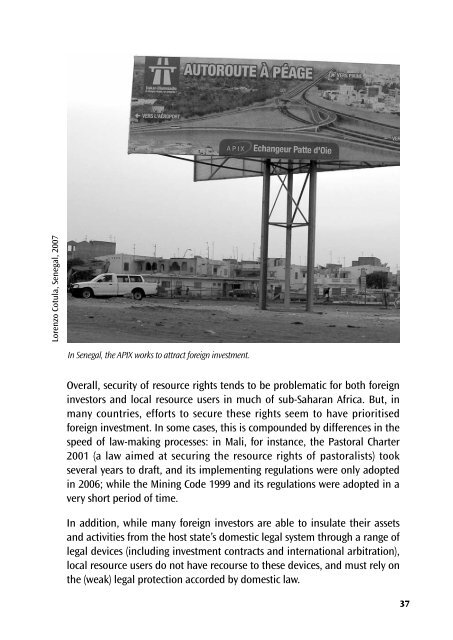Legal empowerment for local resource control
Legal empowerment for local resource control
Legal empowerment for local resource control
You also want an ePaper? Increase the reach of your titles
YUMPU automatically turns print PDFs into web optimized ePapers that Google loves.
Lorenzo Cotula, Senegal, 2007<br />
In Senegal, the APIX works to attract <strong>for</strong>eign investment.<br />
Overall, security of <strong>resource</strong> rights tends to be problematic <strong>for</strong> both <strong>for</strong>eign<br />
investors and <strong>local</strong> <strong>resource</strong> users in much of sub-Saharan Africa. But, in<br />
many countries, ef<strong>for</strong>ts to secure these rights seem to have prioritised<br />
<strong>for</strong>eign investment. In some cases, this is compounded by differences in the<br />
speed of law-making processes: in Mali, <strong>for</strong> instance, the Pastoral Charter<br />
2001 (a law aimed at securing the <strong>resource</strong> rights of pastoralists) took<br />
several years to draft, and its implementing regulations were only adopted<br />
in 2006; while the Mining Code 1999 and its regulations were adopted in a<br />
very short period of time.<br />
In addition, while many <strong>for</strong>eign investors are able to insulate their assets<br />
and activities from the host state’s domestic legal system through a range of<br />
legal devices (including investment contracts and international arbitration),<br />
<strong>local</strong> <strong>resource</strong> users do not have recourse to these devices, and must rely on<br />
the (weak) legal protection accorded by domestic law.<br />
37

















